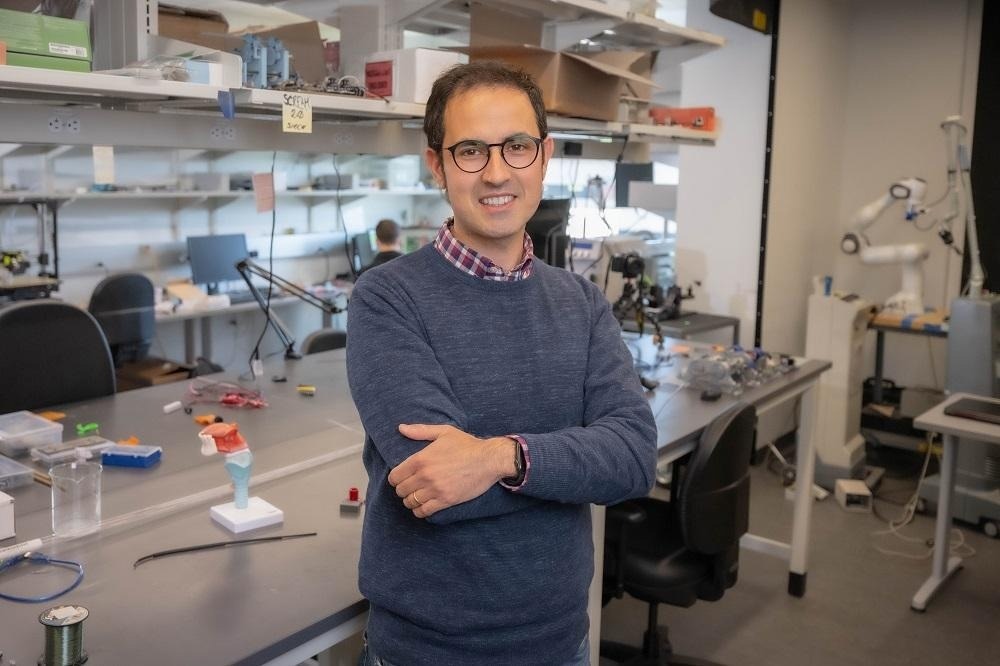The National Science Foundation has given Loris Fichera, a researcher at Worcester Polytechnic Institute (WPI), $599,663 for a five-year project that will enable a new class of surgical robots to treat disease by focused energy delivery, like light, without cutting or touching human tissues.

Loris Fichera. Image Credit: Worcester Polytechnic Institute
Fichera, an assistant professor in the Department of Robotics Engineering, will get funding from the renowned CAREER Award while he looks into how to incorporate laser, radiofrequency, and ultrasonic probes into surgical robots.
The initiative will also use experimental WPI devices being developed for vocal cord and brain surgery to apply Fichera’s discoveries.
Existing surgical tools that use focused energy, such as lasers and radiofrequency or ultrasound probes, work by heating and destroying tissue. The next generation of energy-based surgical robots needs to evolve to better perceive and monitor the impact of heat on body tissues so that surgeons can conduct minimally invasive operations more accurately and without causing damage to healthy tissue.
Loris Fichera, Assistant Professor. Department of Robotics Engineering, Worcester Polytechnic Institute
The research relies on Fichera's earlier work on a robotic surgical tool for the vocal folds, and it will combine his multidisciplinary robotics skills with his knowledge of the effects that concentrated energy has on human tissue.
By employing low-intensity energy pulses to map out a place in the body and calculate how much concentrated energy a surgeon should apply, Fichera will create a method known as “virtual palpation” that will enhance a surgical robot’s perception.
Fichera will utilize this improved vision to improve the control and automation of surgical robots, such as a hand-held laser he is creating to destroy cancers hidden within a patient’s vocal folds.
Additionally, he will utilize his techniques to improve models created by WPI robotics professor Gregory Fischer for a minimally invasive robotic device that uses ultrasound to remove brain tumors.
As part of his effort, Fichera will develop a graduate-level course on surgical robots and provide research opportunities in his lab for up to 60 WPI undergraduates over the course of five years.
Fichera concluded, “Robotic systems that use focused energy have the potential to transform surgery from procedures that use mechanical forces to cut and stretch tissue into something that no longer involves blood and incisions. With a new theory of how robots can interact with their surroundings, we will empower the next generation of surgical roboticists to improve human health.”